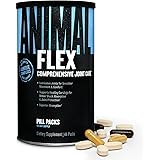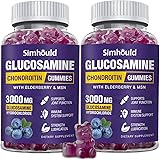Nourishing Your Joints with Quality Nutrition
Understanding Joint-Friendly Foods
To maintain good joint health, I’ve found it essential to nourish my body with the right foods. My go-to list includes fatty fish like salmon and mackerel, which are rich in omega-3 fatty acids. These fish reduce inflammation, making them a fantastic choice for anyone experiencing joint pain.
Additionally, colorful fruits and vegetables are packed with antioxidants. Berries, spinach, and sweet potatoes are a few of my favorites. These foods help reduce oxidative stress in the body, which can lead to joint damage over time.
Don’t forget the power of spices! Turmeric and ginger have been in my pantry for ages. They not only add flavor but also boast anti-inflammatory properties that can further support my joint health.
The Role of Hydration
I used to overlook the importance of hydration, but now I know how critical it is for joint maintenance. Keeping well-hydrated helps keep the cartilage around my joints lubricated. It’s simple—more water means less friction and discomfort.
I aim for clear, filtered water and often carry a reusable bottle with me. I’ve learned that adding slices of lemon or cucumber makes it feel like I’m sipping on something fancy while still getting those hydration benefits.
And let’s not forget that hydration isn’t just about drinking water. Foods like cucumbers, watermelon, and oranges also contribute to my fluid intake. They not only taste great but also help keep my joints well-lubricated!
Supplements to Consider
While I strive for a balanced diet, sometimes I need a little extra support. That’s where joint health supplements come in. I’ve found that glucosamine and chondroitin can be game-changers for some people, though results can vary.
The Best Joint Support (Naturally) Starts with Organic Nutritional Support!
Get 40% Off Here ...
Additionally, I focus on getting enough vitamin D and calcium. These nutrients are key for bone health and can have a significant impact on joint maintenance. If I’m not getting them from food or sunlight, I consider a quality supplement.
Of course, it’s always smart to consult with a healthcare provider before starting any supplement regimen. I do this to ensure I’m making choices that align with my health goals.
Regular Physical Activity
Finding the Right Exercises
In my journey toward healthy joints, staying active is crucial. I gravitate towards low-impact exercises like swimming and cycling. These activities feel great on my joints while still providing great cardio workouts.
You might be surprised by how much I love yoga, too! It enhances flexibility and strength, reducing stiffness in my joints. Plus, the mindfulness aspect helps keep my mind calm and my body relaxed.
The key is to find exercises that I enjoy. It makes it easier to stick with them, whether it’s dancing, hiking, or even just a daily walk around the neighborhood!
The Importance of Stretching
I can’t say enough about stretching. It’s vital for keeping my joints flexible. I make it a point to do a few minutes of stretching before and after exercising. It hacks my way into improved mobility and helps prevent injuries.
Stretching is also fantastic for maintaining a good range of motion in the joints. I’ve noticed that on days when I don’t stretch, I feel a lot more stiffness, which isn’t fun at all.
Once I incorporated a consistent stretching routine, my overall comfort improved dramatically. My advice? Make it a non-negotiable part of your day—I promise it’s worth it!
Listening to My Body
One of the biggest lessons I’ve learned is to listen to what my body is telling me. If I’m feeling pain, it’s a sign that I need to change up what I’m doing. Overdoing it isn’t the answer—even if I love to push myself.
My favorite practice is taking rest days when needed. Instead of viewing them as setbacks, I see them as opportunities to recharge and come back stronger. Trust me, my joints appreciate the break!
Staying attuned to my body has helped me avoid injuries and maintain a more enjoyable exercise routine. I’ve embraced the idea that it’s okay to slow down sometimes.
Weight Management
The Connection Between Weight and Joint Health
I’ve realized that maintaining a healthy weight plays a significant role in my joint health. Excess weight puts additional stress on my joints, especially the knees and hips. This is something I personally monitor regularly.
Achieving a healthy weight involves a mix of balanced eating and exercise. I’ve discovered that when I pay attention to portion sizes and make healthier food choices, my energy levels soar and my joints feel better!
Even small changes can add up. I aim to replace sugary snacks with fruit or nuts, which not only helps with weight management but also benefits my overall health and energy levels.
Setting Realistic Goals
When it comes to weight management, being realistic is key. I set small, achievable goals instead of overwhelming myself. Maybe it’s incorporating one more vegetable into my meals this week or committing to a 10-minute walk each day.
Celebrating the small wins keeps me motivated. Every little step I take towards my weight goals fuels my desire for healthier choices and a more active lifestyle.
It’s all about finding balance and not being too hard on myself. This mindset shift has truly helped my relationship with food and exercise evolve positively.
Seeking Professional Guidance
If you’re finding it tough to manage weight on your own, don’t hesitate to reach out for help. I did this, and it made a world of difference. Working with a dietitian or a personal trainer can provide personalized strategies that fit your unique situation.
Good Joint Health Requires Good Nutrition Health. Click Here for More Info
They can guide you in making better choices and help take the guesswork out of your journey. Plus, having that accountability makes staying on track so much easier.
Remember, you don’t have to do this alone—seek support when you need it, and you might just find the inspiration you’ve been looking for!
Understanding Joint Health Risks
Genetic Factors
Genetics can play a role in joint health, and I’ve learned to be mindful of my family history. If there’s a history of arthritis or joint issues, I know it’s particularly important to stay proactive.
I monitor my own habits closely and incorporate preventive measures. Staying informed helps me understand how my family history might influence my current choices and potential future risks.
You’d be surprised—it’s empowering to take this knowledge and use it to motivate positive changes in my lifestyle!
Age-Related Changes
As I’ve aged, I’ve started feeling the natural changes in my joints. It’s just a fact of life. I focus more on gentle exercises to keep mobility and flexibility rather than high-impact workouts that can cause wear and tear.
It’s all about adapting my approach as I age. I’ve discovered that embracing low-impact activities keeps my joints healthier while allowing me to stay active and feel great.
Understanding that aging is a natural process helps me appreciate my body’s capabilities and encourages me to care for my joints through proper practices and routines.
Environmental Influences
There are many outside factors that can affect joint health, too. For instance, I keep an eye on my environment—things like temperature and humidity can have an impact on how my joints feel, especially during colder months.
I find that dressing appropriately for the weather helps, whether it’s layers in winter or light breathable fabrics in summer. Staying comfortable can make a huge difference in how my joints behave throughout the day.
And yes, even managing stress levels contributes to joint health. Stress tends to manifest physically in my body, tightening my muscles and affecting my joints. Setting aside time for relaxation and fun truly pays off!
Routine Maintenance and Check-ups
The Importance of Regular Check-ups
I’ve learned that staying on top of regular check-ups with my healthcare provider is essential for joint maintenance. This is a great way to get ahead of any potential issues before they escalate.
During these check-ups, I discuss my joint health and any concerns I might have. It gives me peace of mind and helps me stay informed about any changes to expect as I age.
These discussions also help identify new preventive strategies tailored to my personal needs. Trust me, it’s easier to spot issues before they become bigger problems!
Self-Monitoring Techniques
I monitor my joint health at home, too. I keep track of any changes in pain levels or flexibility, which helps me stay aware of my body’s signals. This self-awareness is a key part of my routine now.
I’ve even started journaling any experiences related to my joint health—what I did that day, how I felt, and any patterns I notice. This has proven super helpful when sharing with my healthcare team!
It’s amazing how much I learn about myself through this process. Plus, it empowers me to take action quickly if I notice something amiss.
Staying Educated
Knowledge is power, and I always seek education on joint health. Whether it’s articles, podcasts, or even workshops, I believe it’s crucial to stay informed about new research or techniques that can enhance my joint care.
Additionally, connecting with communities or support groups has been invaluable. Hearing others’ experiences has taught me new tips and tricks to promote better joint health.
This ongoing education allows me to adapt my routine as needed. I’m committed to doing everything I can to support my joint health for the long haul!
FAQs
1. What foods are most beneficial for joint health?
Foods rich in omega-3 fatty acids, antioxidants, and anti-inflammatory properties are great for joint health. Think fatty fish, colorful fruits and vegetables, and spices like turmeric and ginger.
2. How often should I exercise to maintain joint health?
Aiming for at least 150 minutes of moderate aerobic activity weekly, along with strength training twice a week, can help maintain joint health. Just make sure to listen to your body!
3. Are supplements necessary for joint health?
While they can be beneficial, supplements aren’t always necessary if you’re getting enough nutrients from a balanced diet. It’s best to consult a healthcare provider to tailor recommendations to your needs.
4. How can I tell if I’m overdoing my activities?
Listen to your body! If you feel increased pain, swelling, or stiffness, it might be time to take a break. It’s important to rest and not push through the discomfort.
5. Why are regular check-ups important for joint care?
Regular check-ups allow you to stay ahead of potential issues and discuss any concerns you might have. They’re key to adapting your joint care strategies based on your specific needs.













